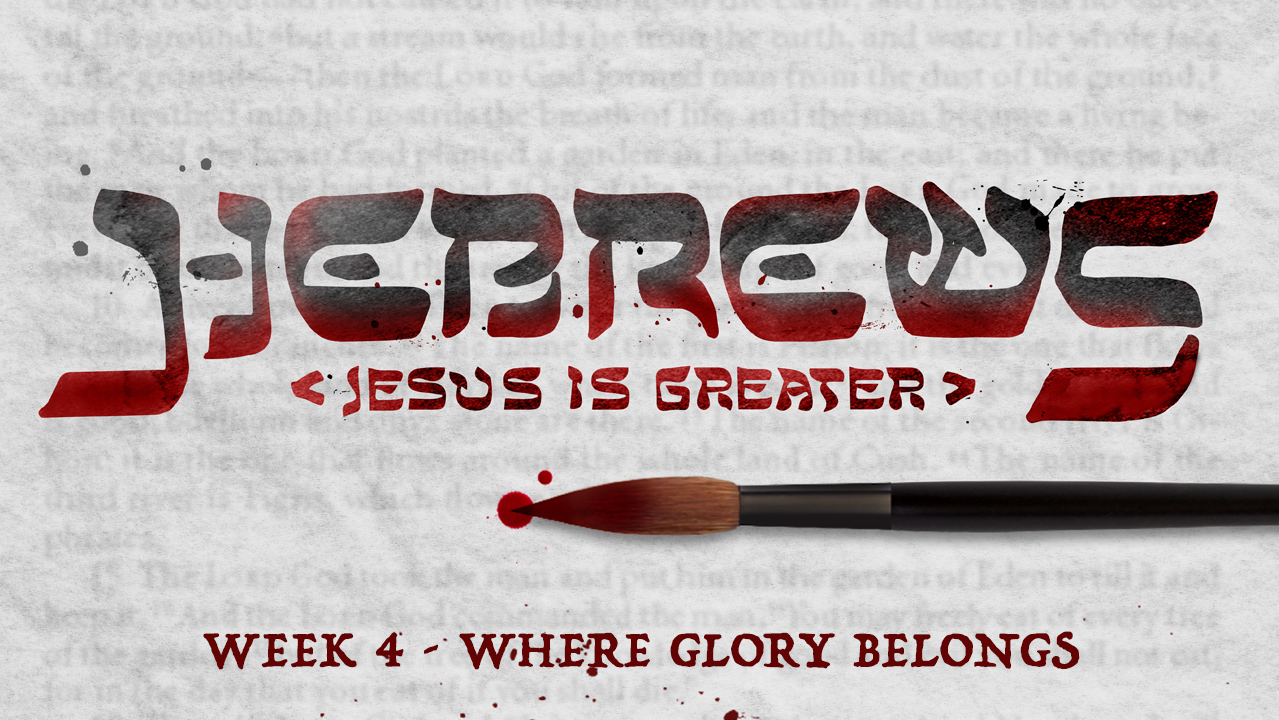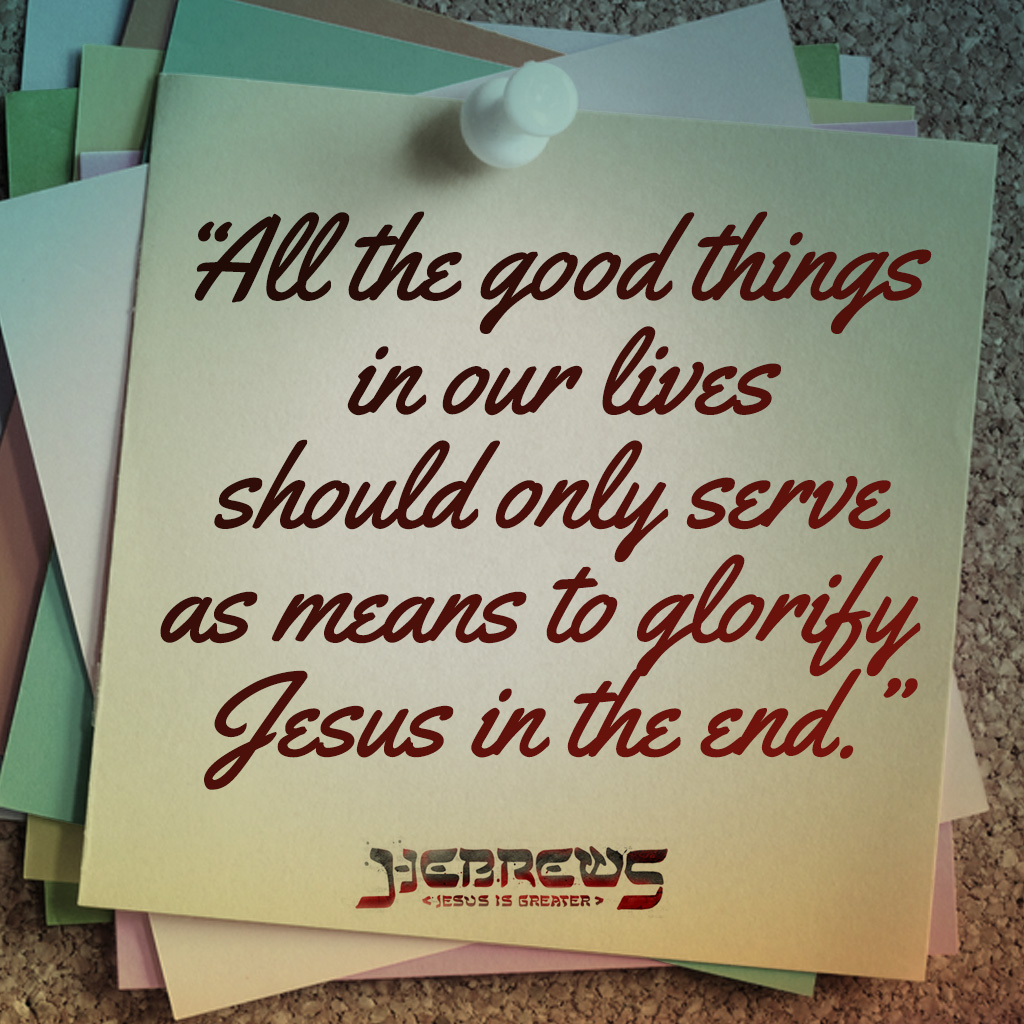
07 Mar Sermon Recap | Hebrews | Where Glory Belongs
As believers, we have direct access to God’s messenger and our High Priest, Jesus. However, we often settle for “good” things when we have access to the Greatest. We focus on and place our hope in the things of this world rather than the One who created all of these things. We focus on the house, when our attention, praise, and worship should be directed to the builder. All the good things in our lives should only serve as a means to glorify Jesus in the end.
Scripture References
Look and See | The Village Church | iTunes
Revelation 1:4-8 • Psalm 66:1-5• Revelation 4:11
Exalted Over All | Vertical Church Band | iTunes
I Surrender | All Sons and Daughters | iTunes
Romans 12:1 • James 4:10
Worthy of it All | Grace Church Worship | iTunes
Psalm 51:16-17, Psalm 139:23-24, Amos 5:21-24, Psalm 19:12-14
In Christ Alone | Kristian Stanfill | iTunes
Jude 1:24-25 • Philippians 3:7-11 • Acts 4:8-12 • Romans 8:38-39
1. As a member of God’s family, we must think carefully about Jesus. We should be intentional and deliberate about orienting our thoughts around Him. Are you thinking carefully about the things you say you believe about Jesus? How are the ways you think about Jesus giving you hope and influencing the way you live or giving you courage to keep from falling back into sin or from loving lesser things? Are you thinking about Him in such a way that He is fixed at the forefront of your mind?
2. For the Jews, Moses served as an illustration of who Jesus is. Just like the Jews, we can put our hope and trust in the good things God has given us instead of recognizing they are meant to be a means to know and glorify Jesus as the end. Think about the following to consider what your Moses may be: What is at the forefront of your mind that you would be angry or discouraged if someone took from you? What do you use to feel good about yourself or that you are dependent on to feel “right with God”? or What do you want to be known by or find your value and significance in?
3. We could be in one of a few different places with how we manage the good things in our life. Which of the following scenarios do you identify with most closely?
– Your identity is wrapped up in “the means”. You might need to spend significantly less time on these good things and more time with Jesus. What steps do you need to take?
– You are tempted to go back to a means and put your identity and confidence in it. What do you need to confess in community in order to repent and put your confidence back in Christ?
– You have not put your faith in Jesus. Your confidence and courage is in earthly things. You haven’t experienced lasting transformation and life change, but Jesus as the ultimate authority and comfort for your soul wants to come live inside you and transform you. What earthly thing is your confidence built around? What is holding you back from surrendering these things to the One who gives you life?
4. Jesus has both ultimate power and ultimate authority to not only save us but transform us. When is the last time you became clear on who God is, and it reoriented your life?
Thoughts to Consider
1. All of the good things in our life can be corrupted when we make them a means to an end. However, these means are just servants—they can’t save us.
2. The author of Hebrews builds the argument of Moses because this illustration is personal for Jews. They have the faithful servitude of Moses at the forefront of their minds as the author challenges them to recognize that Jesus is the source of Moses’ greatness. Moses is the house, but Jesus is the Builder.
3. We can make the means our ends through:
– Work—as we let it become a means to power or worry and pushing out God.
– Family—as we let it become our identity.
– Social justice—as we find our identity in our level of engagement.
– Ministry—as we enjoy serving more than we enjoy Jesus.
– Grace Church—as we build community and resources that we idolize over Jesus.
– The Bible—as we look to it as a checkbox or a rule under a works-based faith.




